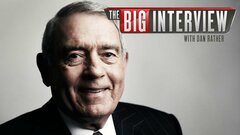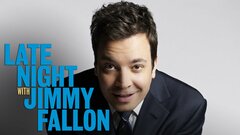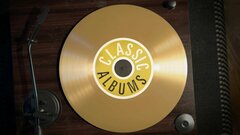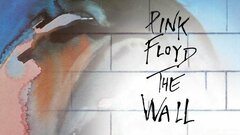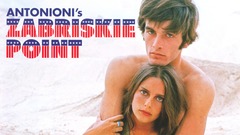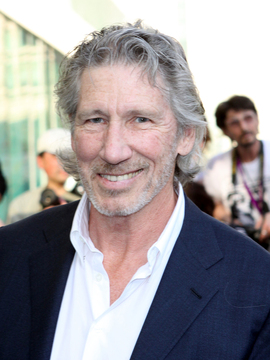A founding member of the legendary British rock band Pink Floyd, Roger Waters was its primary songwriter for most of its four-decade existence, penning such enduring material as the Dark Side of the Moon (1973) and The Wall (1979), as well as such songs as "Wish You Were Here" (with guitarist David Gilmour), "Money" and "Another Brick in the Wall." Waters assumed control of the band in the late 1960s, following the departure of its founding member, the brilliant but troubled Syd Barrett. Under his aegis, Pink Floyd transformed from a psychedelic/improvisational unit to one of the most successful progressive rock acts of the '70s, with a reputation for massive, elaborate live shows. Waters anchored the band around a series of concept albums, penned largely by him, which addressed themes of loneliness, alienation and entropy, inspired in part by his own troubled childhood. But his exacting control over the band's sound and focus sharply divided its members, resulting in Waters' departure in 1985. He would enjoy a moderately successful solo career during the 1980s before revisiting his best work with Pink Floyd in concert throughout the 1990s, while his long-standing feud with his former bandmates appeared to end with a 2005 reunion. Though his history with Pink Floyd was often marked by contention, there was no question that Waters was the primary architect of the band's greatest work during its most accomplished period in the 1970s.
Born George Roger Waters on Sept. 3, 1943 in the Surrey county village of Great Bookham, England, he was the younger of two sons by educators Eric and Mary Waters. Waters' father was initially a conscientious objector during World War II before serving in the British Army at Anzio, where he was declared missing or presumed dead in 1944. Waters' mother raised her two sons in Cambridge, where he attended the Cambridgeshire High School for Boys. There, he excelled at sports but disliked the oppressive rigidity of his classes, which would later inform his work on The Wall. Waters found solace in music, playing guitar with another Cambridgeshire classmate, Roger Barrett, who went by the nickname "Syd," as well as David Gilmour, a student at the nearby Perse School. He later moved to London to study architecture at Regent Street Polytechnic, where he met Nick Mason and Richard Wright. By 1963, the trio were playing music together and quickly losing interest in their studies.
The trio formed a group called Sigma 6, which soon added Barrett, then a student at the Camberwell Art School. A dizzying array of lineup and name changes occurred between 1964 and 1967 before the group settled on Barrett as their singer, lead guitarist and chief songwriter and Waters as bassist. As for the band's name, such monikers as the Abdabs, Leonard's Lodgers, Spectrum Five and the Tea Set were briefly adopted before Barrett suggested The Pink Floyd Sound, which was drawn from the names of two blues singers listed in the liner notes for a Blind Boy Fuller LP, Pink Anderson and Floyd Council. "Sound" was eventually dropped in favor of The Pink Floyd before the definitive article was shorn in 1967, rendering the band as simply Pink Floyd. By this point, they had developed a following for their live sets, which combined Barrett's dissonant guitar playing with lengthy improvisational passages and extremely powerful lighting arrangements. In doing so, Pink Floyd became a leading player in the growing London Underground scene, which counted such psychedelic pioneers as the Pretty Things, Pink Fairies, Soft Machine and Hawkwind among its number.
By the time the band had released its first LP, Piper at the Gates of Dawn (1967), it had become evident to all involved that Barrett's mental state had deteriorated due to stress and heavy drug use. A temporary solution was found in Gilmour, who had been contacted by Mason to serve as Barrett's onstage replacement, while their band leader was sequestered in the studio to pen new material for the group. However, Barrett's condition proved so unstable that he was eventually removed from the group in 1968. Songwriting duties were soon divided between Waters and Gilmour, but by the time of their soundtrack to the film "More" (1969), Waters was providing the majority of the group's material. The following year, he teamed with Pink Floyd orchestrator Ron Geesin to record the soundtrack for the scientific documentary "The Body" (1970). Subsequent Pink Floyd albums like Atom Heart Mother (1971) and Meddle were group efforts, with all members contributing songs, but by 1972, Waters was again penning the majority of the band's work on Obscured By Clouds (1972), the soundtrack for Barbet Schroeder's film "The Valley" (1971).
Waters also wrote the majority of 1972's Dark Side of the Moon, which brought the band to widespread attention for the first time. Gone were the extended improvisational pieces on which Pink Floyd had built its name; in their place was a complete piece of music, divided into individual tracks but connected by a central theme of contending with external pressures that could drive a person insane, as viewed through the context of the band's experiences with touring and Barrett's mental downfall. Moon also marked the band's first use of synthesizers and effects loops, most notably coins spun in a potter's bowl on "Money" and disembodied voices responding to questions posed by Waters. The end result, assembled with the help of engineer Alan Parsons, was equal parts haunting and inspiring, and reached No. 1 on the U.S. album chart, minting them as superstars in America for the first time. More significantly, Moon went on to become one of the best-selling albums in history, with 40 million copies sold over a period of 738 weeks on the Billboard 200.
With the success of Dark Side of the Moon, Waters commenced with a series of concept albums that would take Pink Floyd to the heights of popularity. He continued to mine dark material for the albums, touching on emotional and physical absence in Wish You Were Here (1975), social discord in Animals (1977) and finally, childhood trauma and adult alienation in what many considered to be his masterwork, The Wall (1979). Each album surpassed its predecessor in terms of success, with The Wall selling some 23 million units and generating a surreal feature film of the same name, written by Waters, in 1982. But the rise to the top of the business came at a steep price; Waters' controlling nature put him at odds with Gilmour, who felt that his songwriting efforts were being ignored, and Wright, whose reticence to work with Waters led to his departure from the group during the recording of The Wall. A mounting series of additional problems - from bad financial investments to Waters' open dislike of performing in large venues to battles with director Alan Parker over the execution of "The Wall" - led to a combative environment within the ranks that reached its climax during the making of the band's 1983 album, The Final Cut.
Intended as both a criticism of England's ruling Conservative Party and a tribute to his late father, The Final Cut (1983) was also Waters' last studio effort with Pink Floyd. Waters' and Gilmour's working relationship collapsed over creative differences regarding the album, resulting in the guitarist's name being dropped from the production credits. Though it reached the top of the charts upon release, The Final Cut was the lowest-selling Pink Floyd album since Meddle. With no plans to tour behind the album, each member of the band commenced on solo efforts. The Pros and Cons of Hitchhiking (1984) was Waters' first effort outside of the Pink Floyd camp since his early collaboration with Ron Geesin, but its stream-of-consciousness approach, detailing a motorist's dreams about marriage and sex during a road trip through Central Europe, found few listeners. A subsequent tour was a costly failure. Waters officially left Pink Floyd in 1985, issuing a statement that the band was a "spent force, creatively." He began legal proceedings to have the band's partnership dissolved, a move that was blocked by Gilmour and Mason.
While sorting out these issues, Waters wrote the score for "When the Wind Blows" (1986), a potent animated film about the effects of a nuclear attack upon rural England. Upon its completion, all three former bandmates signed an agreement that released Waters from his contract with Pink Floyd and granted him the copyrights to The Wall. Gilmour and Mason were allowed to continue as Pink Floyd, and enjoyed considerable success with A Momentary Lapse of Reason (1987) and The Division Bell, which saw the return of Wright as a fulltime band member. In 1987, Waters released his second solo effort, Radio KAOS, another concept record with a strong anti-war message that fared moderately well with listeners. Two years later, he staged an all-star production of The Wall in Germany to celebrate the collapse of the Berlin Wall. Waters himself performed along with Van Morrison, Sinead O'Connor, Joni Mitchell and numerous others, but Gilmour and the other Pink Floyd members were not invited. The event generated a platinum-selling double live album, which preceded his fourth solo record, Amused to Death (1992). A wholesale criticism of Western society with a particular emphasis on the First Gulf War, the record performed markedly better than its predecessors, reaching No. 21 on the U.S. albums chart.
Waters would spend much of the 1990s working on the English translation of "Ça Ira," a three-act opera about the French Revolution. Following Pink Floyd's induction into the Rock and Roll Hall of Fame in 1996, he returned to live performance for the first time in over a decade with the 1999 "In the Flesh" tour. Comprised of both solo and Pink Floyd material, the live dates sold so well that a second leg in larger venues followed in 2000. But the most significant development of the new millennium was Waters' reunion with Gilmour, Wright and Mason at the Live 8 concert in 2005. During interviews to promote the release of "Ça Ira" that same year, Waters weathered the inevitable questions about his Pink Floyd past with surprising good cheer, a sign to many observers that his antagonism toward the band had mellowed in the ensuing years. Waters' goodwill towards his bandmates came to fruition in July of that year when Live 8 organizer Bob Geldof brokered a reunion between all four members. Though initially marked by disagreements during rehearsals, the 25-minute performance was capped by a group hug among the four members, which sparked not only rumors of a full-blown reunion tour but also an astonishing spike in album sales, with Echoes: The Best of Pink Floyd (2001) rising 1,343 per cent in the week following the performance. Waters also publicly apologized for his part in the rancor that marked the final years of his tenure in Pink Floyd.
No reunion tour materialized from the Live 8 performance, so Waters took to the road for the Dark Side of the Moon Live tour, a two-year world jaunt that featured both Pink Floyd material, including the entire Dark Side album, as well as solo songs. Nick Mason joined him on select dates throughout the tour, which marked a period of frequent collaborations with his former bandmates, save for Richard Wright, who passed away in 2008. In 2010, he performed a four-song set of Pink Floyd tunes with Gilmour at a benefit show before launching the The Wall tour that same year. The sprawling live event, which Waters claimed to be his final live performances, was capped by a 2011 appearance with Gilmour and Mason on "Comfortably Numb" and an affectionate acoustic take on "Outside the Wall" at the 02 Arena in London. By Paul Gaita































